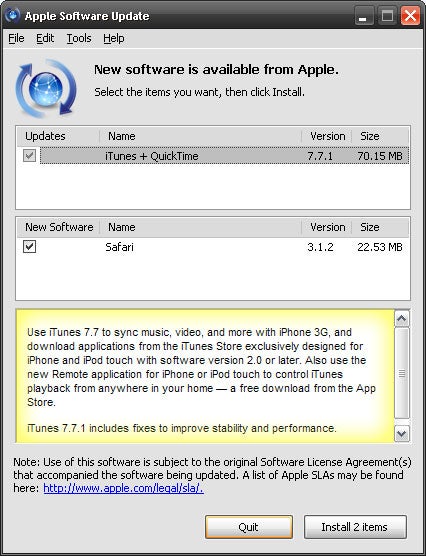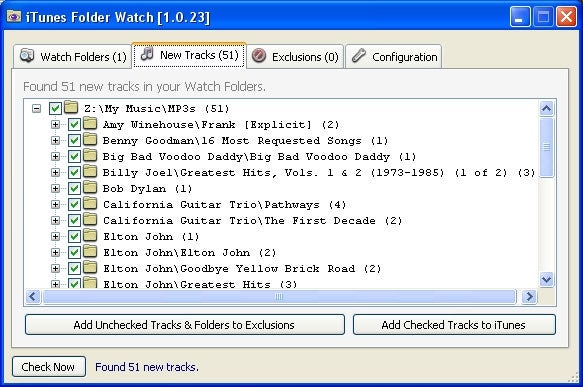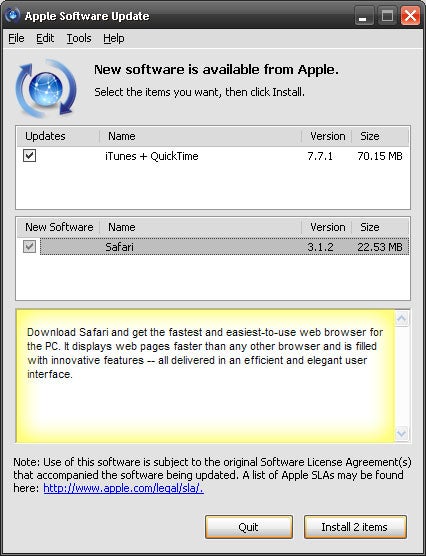But, oh, does iTunes drive us crazy sometimes. It lacks obvious features, hobbles others, and does things that are just plain dumb. In some cases, Apple's decision-making is to blame, not iTunes itself, but the latter is the conduit through which those bad decisions trickle.
We've rounded up 11 of these annoyances, all of which Apple could fix in about  5 minutes. In the meantime, we've listed workarounds for many of them--because, let's face it, much as we hate iTunes sometimes, we're stuck with it.
(You might also be interested in our story "Annoying Software: Is Apple iTunes the New AOL?")
1. Wildly Inefficient Updates
2. DRM (Boo!)
iTunes gave us the 99-cent song download, thus paving the way for honest people to buy music at a fair price. So why does the iTunes Store still employ digital rights management (DRM) for the majority of songs in its library? Blaming the record labels no longer holds water: AmazonMP3 and Rhapsody are among a growing number of services selling DRM-free MP3s from all the major labels, not just EMI. At least iTunes no longer charges extra for the latter's "iTunes Plus" selections, but why hasn't Apple given DRM the heave-ho once and for all? At least customers have alternatives now.
3.  No Monitoring of  Music Folders
Fortunately, solutions are available. iTunes Folder Watch, a free utility for Windows (sorry, Mac faithful), monitors designated folders, then automatically adds any newly discovered music to your iTunes library. And if you buy music from AmazonMP3 or the Rhapsody MP3 Store, those stores' download utilities will automatically add new purchases to your iTunes collection--no intervention required.
4. 'Pushing' of Other Programs by iTunes Installer
Meanwhile, any Windows user who installed iTunes 7.7 (the version that introduced the App Store) will find a surprise in Windows' Control Panel: a MobileMe service Preferences icon. It lands there whether you're a MobileMe subscriber or not, and whether you want it or not.
5. No Subscription Service--Still 
If you're going to keep clinging to DRM, Apple, how about giving us a music-subscription service to go with it? You know, the kind offered by Napster, Rhapsody, and Zune Marketplace. For 15 bucks a month,  a Zune Pass lets us  buy unlimited (but not unrestricted) downloads that we can pack into our high-capacity iPods. It's an unbeatable way to discover new music--and the more music we discover, the more music we're likely to purchase.





No comments:
Post a Comment